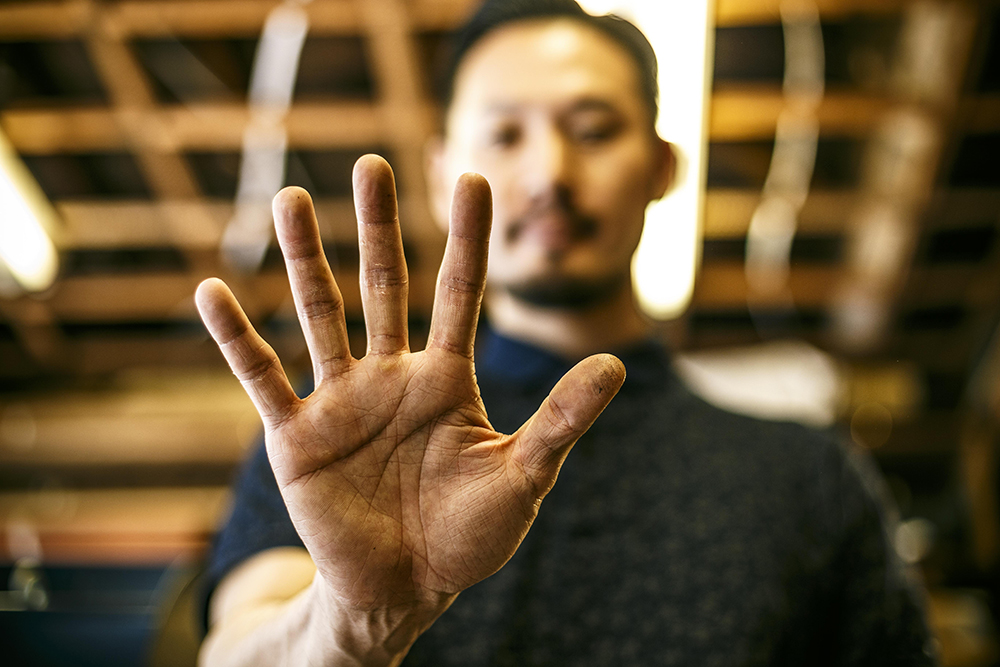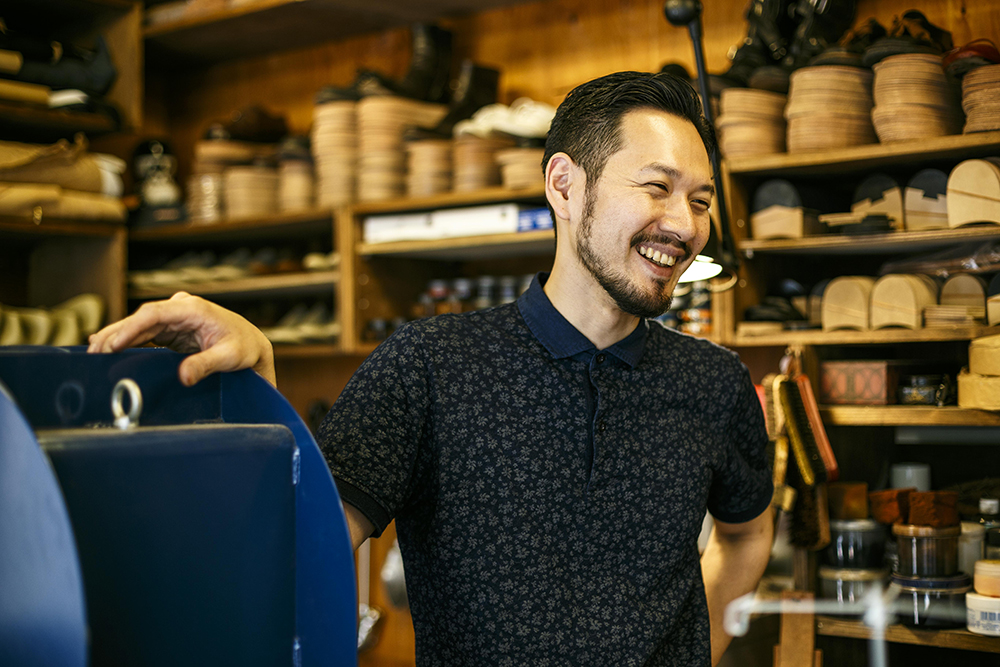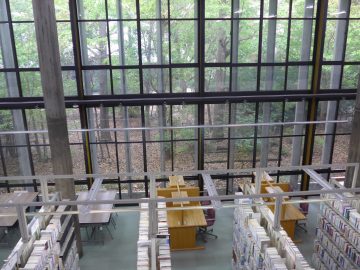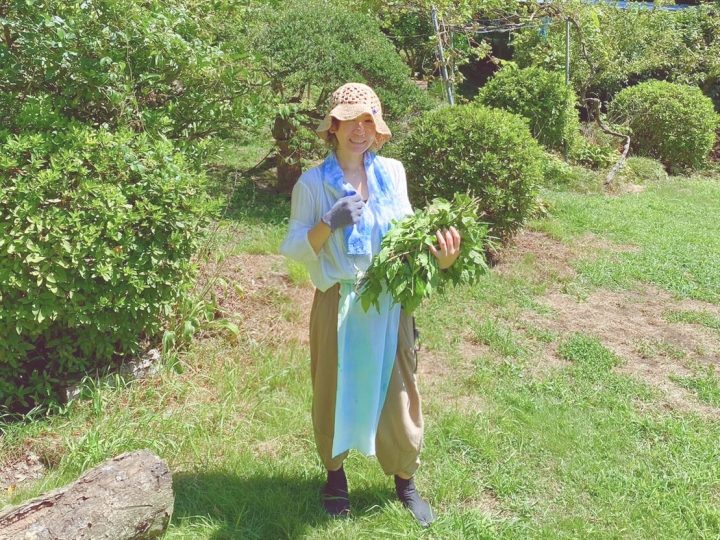Hudson Shoe Store: Focusing on your shoes and repairing them as if they were being made
![靴としっかり向き合い、つくるように修理する[ハドソン靴店]](https://magcul.net/wp-content/uploads/2018/03/HUDSON_MG_4649.jpg)
Manufacturing
Creating things
Craftsman's Landscape
This issue's site
[Occupation] Shoemaker
[Craftsman name] Rui Murakami, Hudson Shoe Store
[Location] Kanagawa Ward, Yokohama
Carefully, slowly, and with thought.
A corner introducing manufacturing sites that make use of handwork.
This time, it was said that other stores around the world could not repair it.
"Rejected" shoes are collected,
It can be said to be the savior of the shoe world.
We went to the shoe repair shop "Hudson Shoe Store".
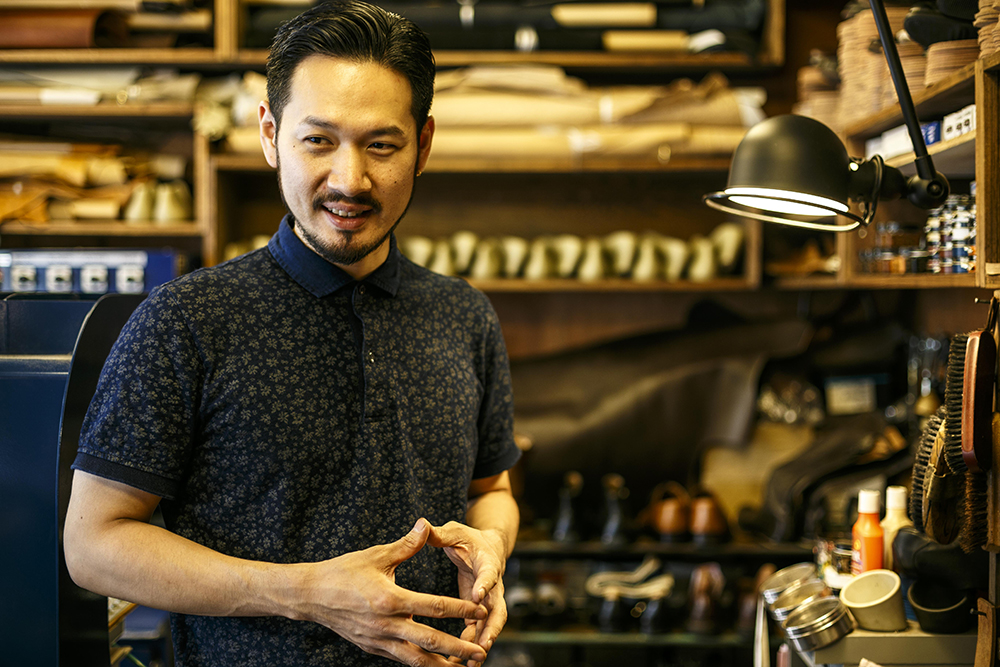
Seven years ago, Murakami became the second generation owner of Hudson Shoe Shop, carrying on the legacy of his predecessor, said to be the last handmade shoemaker in Yokohama. Inside the workshop, shoes are lined up on the shelves, surrounded by a variety of shoemaking tools, including leather knives and alligators, all waiting for their turn. While learning techniques from his predecessor, Murakami has mostly self-taught himself when it comes to detailed repairs. "I sharpen my own leather knives, and even adjust the needles and thread to fit each shoe," he says. "Because I value listening attentively to the customer's thoughts and requests about their shoes, I hold pre-meetings until the customer is satisfied," he says, dedicating a great deal of time to these meetings, a tradition that is characteristic of Hudson. A "shoe repair shop with many meetings"...the love poured into shoes is boundless.
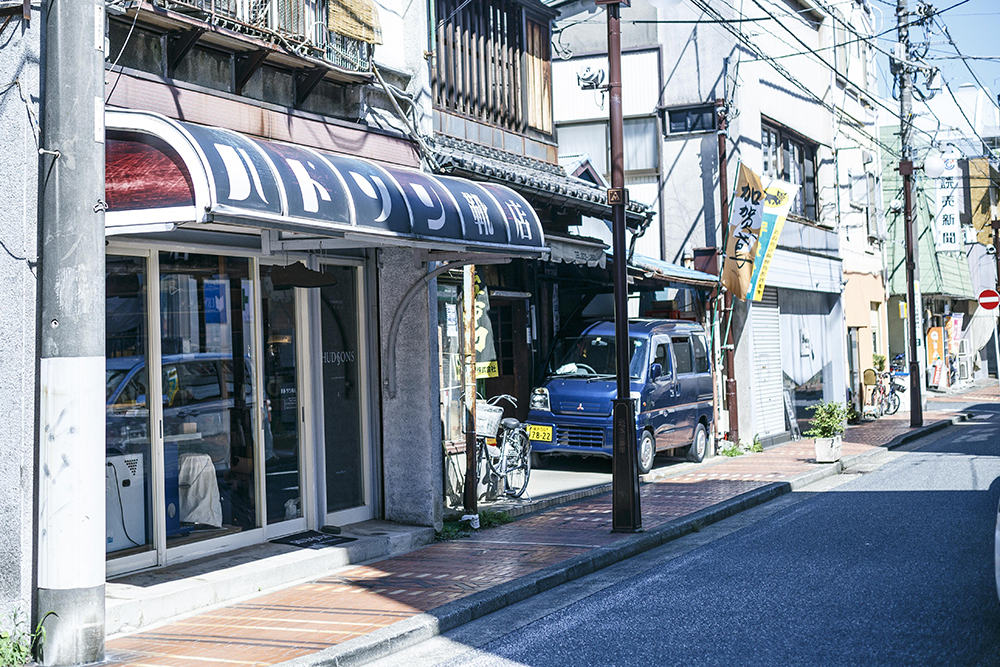
"In a niche spot in Yokohama," says Murakami, Hudson Shoe Store is located in a corner of Matsumoto 3-chome Shopping Arcade, a five-minute walk from Tanmachi Station on the Tokyu Toyoko Line. This year marks 56 years since the store was opened here in 1961 by the previous owner, Masatoshi Sato, who made shoes for many famous people, including former Prime Minister Shigeru Yoshida. "It seems that even the people in the shuttered shopping arcade had no idea that there was such an amazing shoemaker in this location. They never imagined that there was someone here making shoes worn by the Prime Minister of Japan." After the previous owner passed away, Hudson Shoe Store was closed for about a year, but Murakami took over seven years ago.
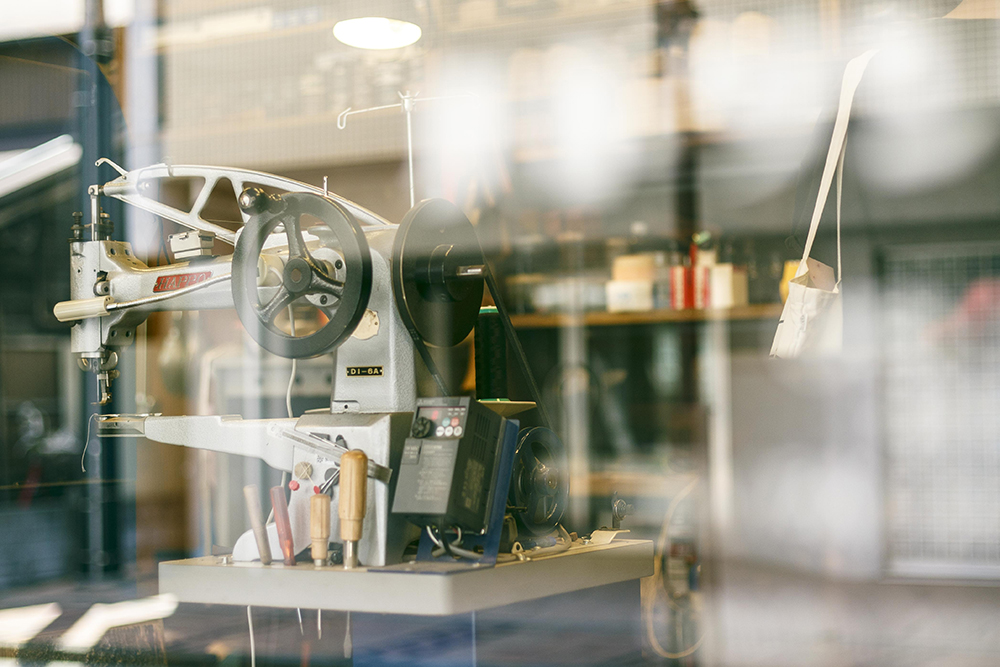
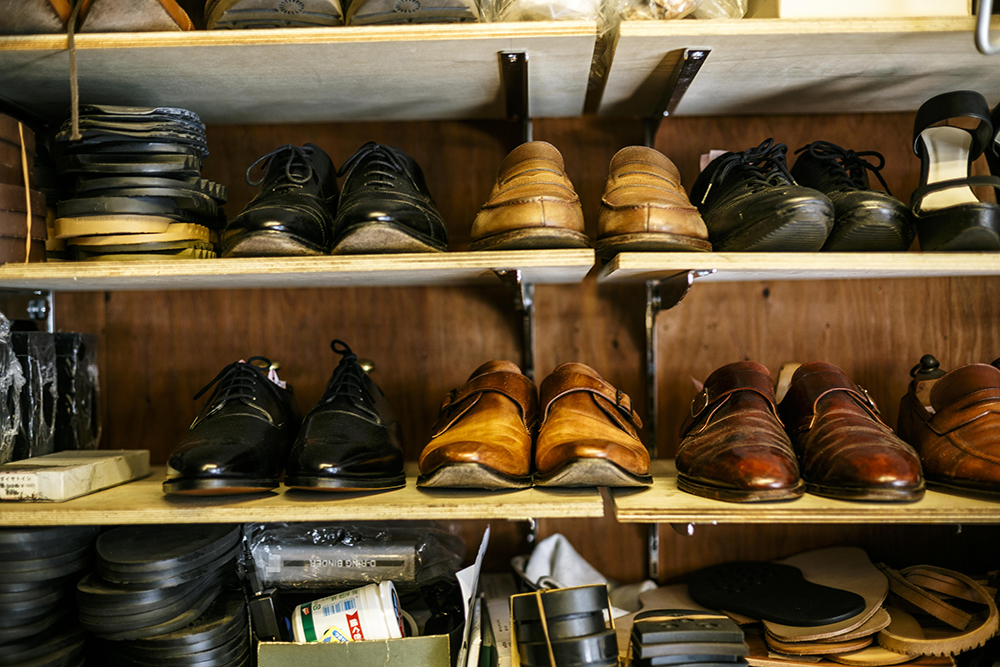
As mentioned at the beginning, shoes that have been rejected from all over the country are collected here. Shoes that have been refused repair by franchise shoe repair shops, which are becoming more common in the city, are brought in through word of mouth and the Internet after being told they cannot be repaired due to their complexity. Murakami's reputation as a shoemaker seems to be spreading overseas, and recently a pair of shoes was sent across the sea from Belgium.
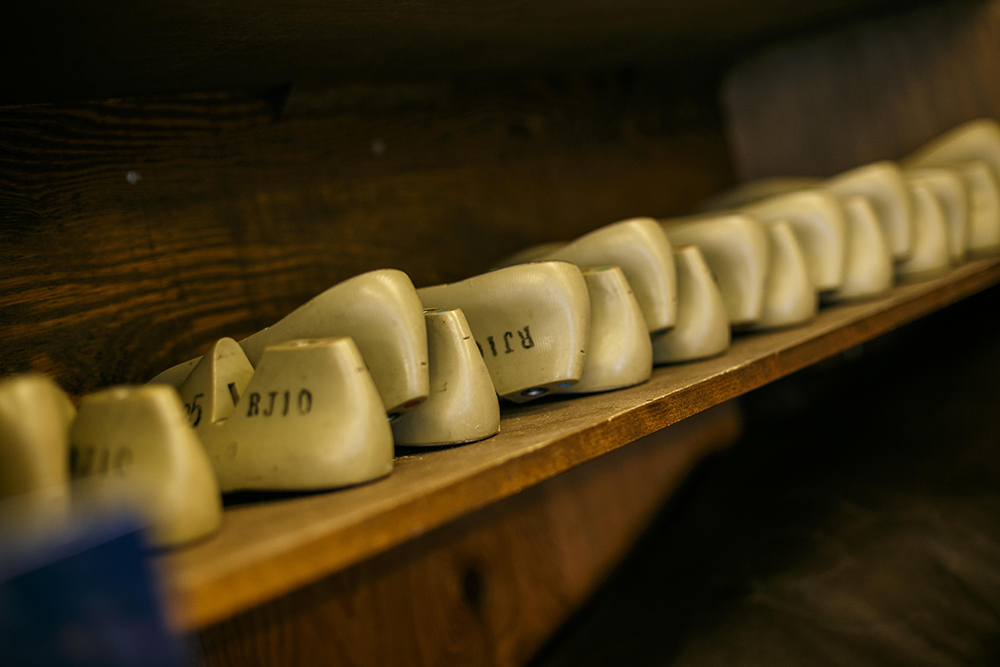
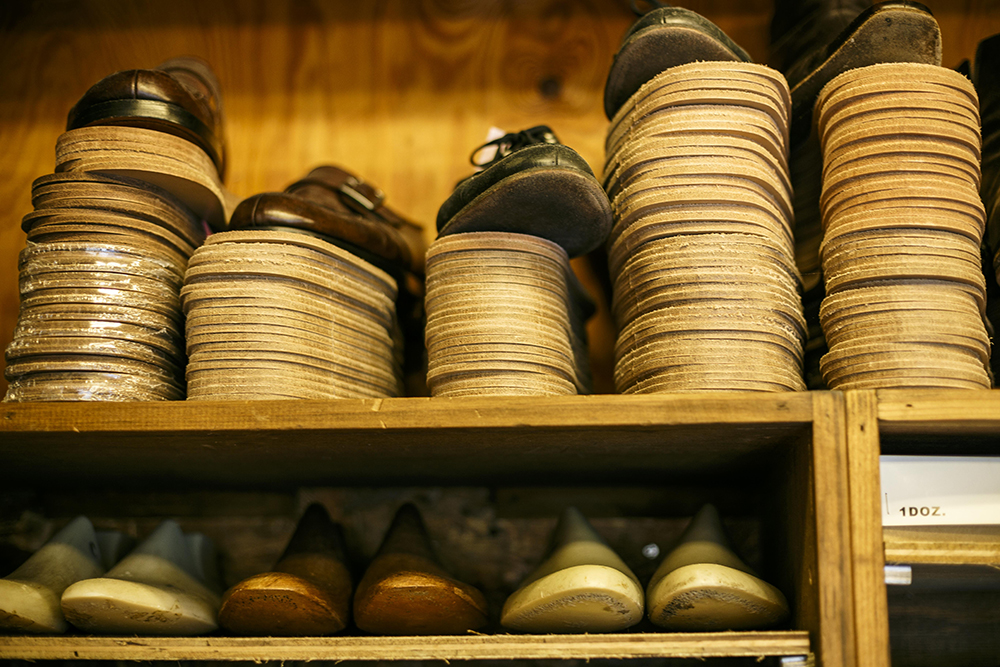
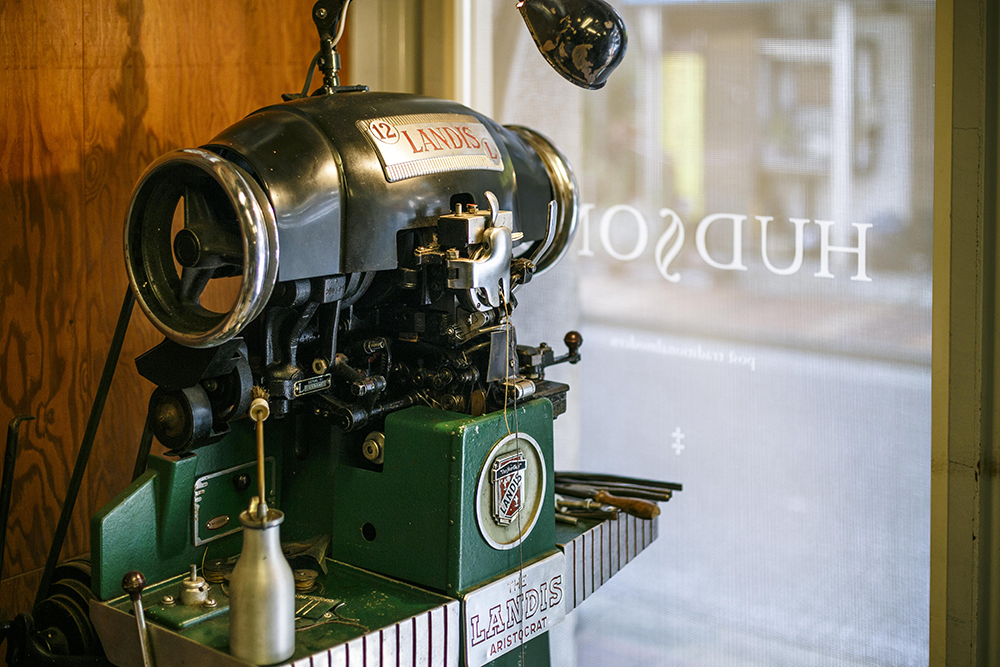
Shoe repairs at Hudson Shoe Store begin with a lengthy reception process. For first-time customers, it takes two to three hours for each pair of shoes. "Of course, we need to be skilled, but since customers have taken the trouble to look us up on the internet and found our shop, we feel it's only natural that we provide a personalised repair service. At first, some people around me were worried that we were wasting their time and that it would reduce our earnings (laughs), but we decided to spend as much time as possible at the reception desk until the customer was satisfied. Once they have gained our trust, the time it takes will gradually decrease from the next time onwards."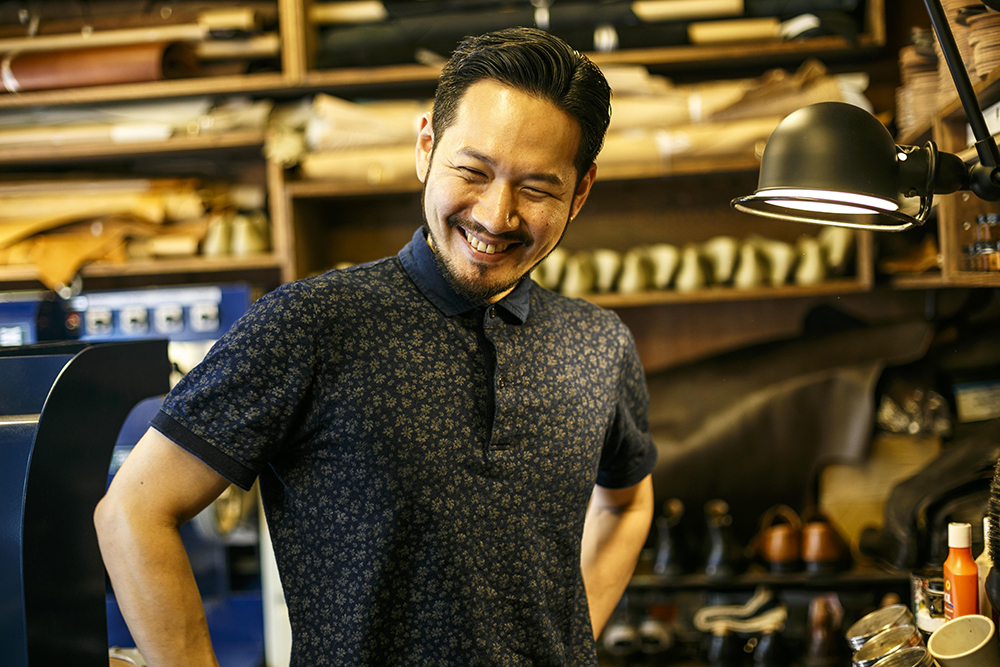
Murakami is self-taught in repairs. Of course, his skills are based on what he learned from his predecessor and the experience he gained from working his way up the ranks, but when he faces the shoes of the day, a once-in-a-lifetime relationship is born between the craftsman and the shoes.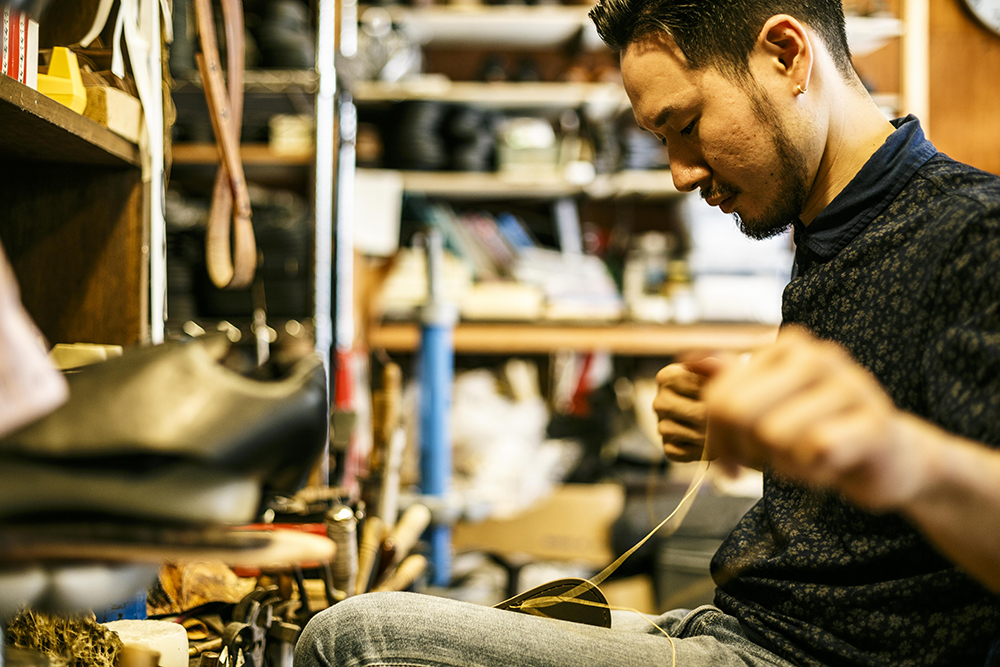
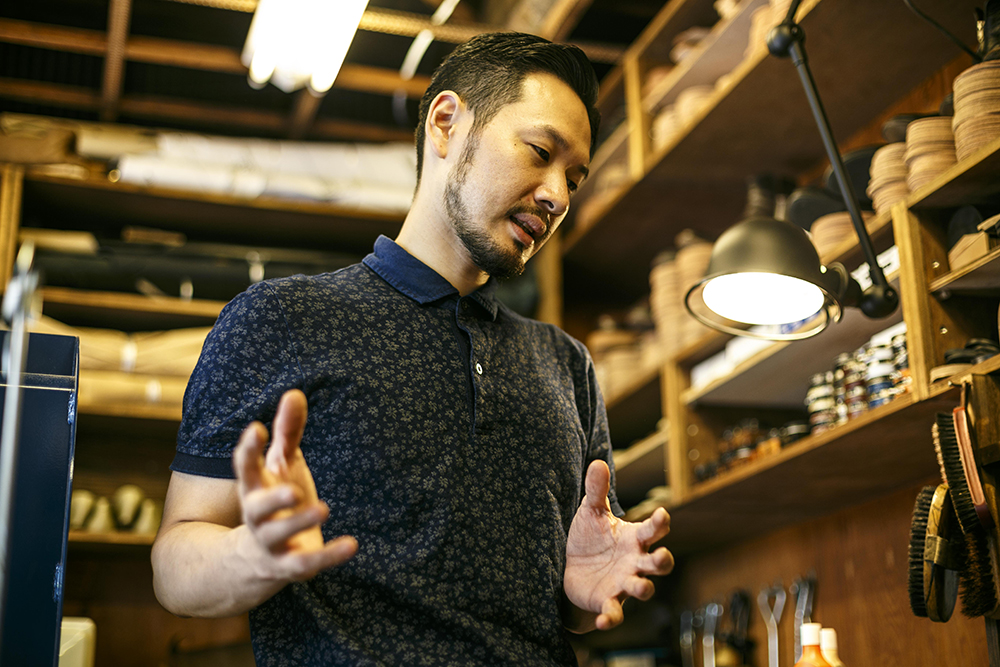
"My approach is to repair shoes with the same feeling as if they were being made. I think of it as 'remaking' rather than 'repairing'." With the shoes to be remade in front of him, this is where the 'dialogue with the shoes' begins. In front of him are shoes that other shops had given up on and brought in. What is the best way to remake these? What materials to use, what tools to use, what steps to take... In short, he says he "spends a lot of time looking at the shoes."
For example, here are some leather sandals that I was just about to start working on at the time of the interview.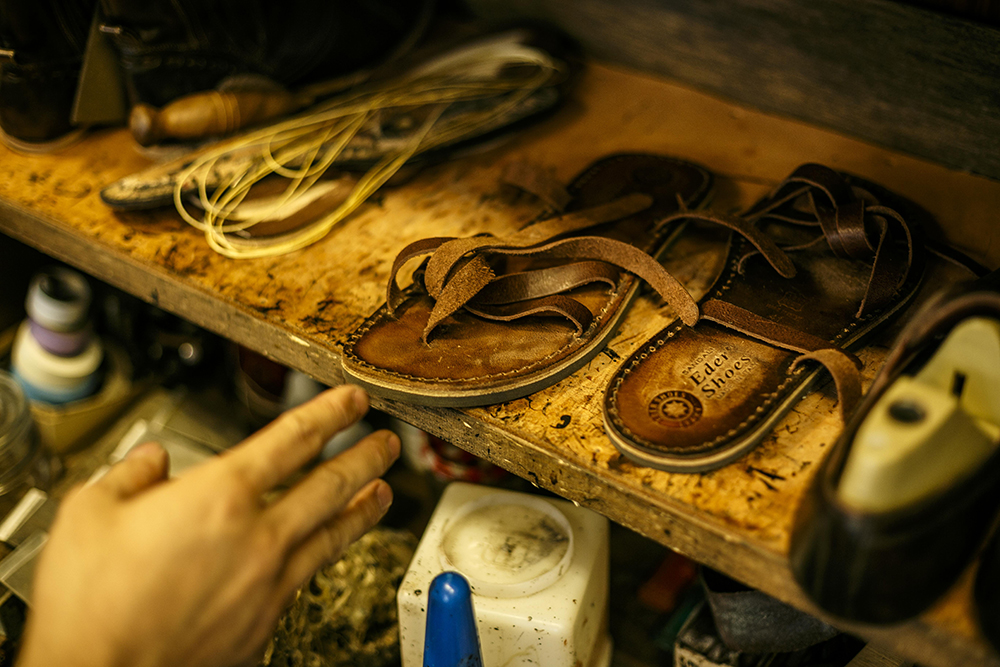
He looked at the sandals for a while, picked them up, put them on the workbench and looked at them again, then looked at his tools, and silence ensued... And finally, he decided on how to repair them.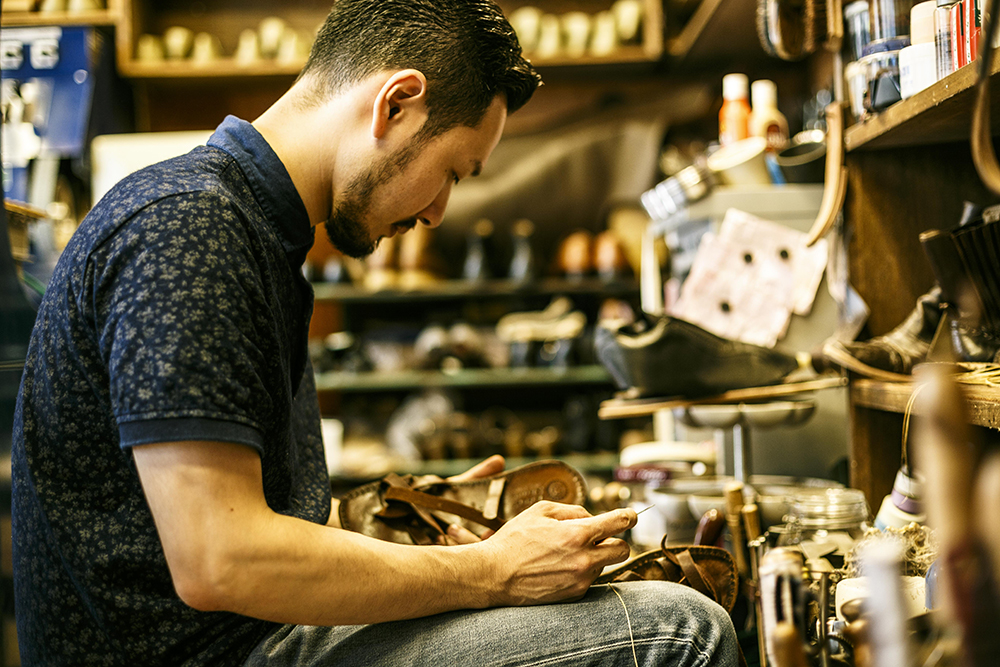
"The outside of these sandals is leather, but the inside is rubber. So even if you make a hole with a regular awl, the rubber will close up right away. I was worried about how to solve this problem," he said. Even though he could see the way forward, he said he would continue to test and test the shoes while checking their condition.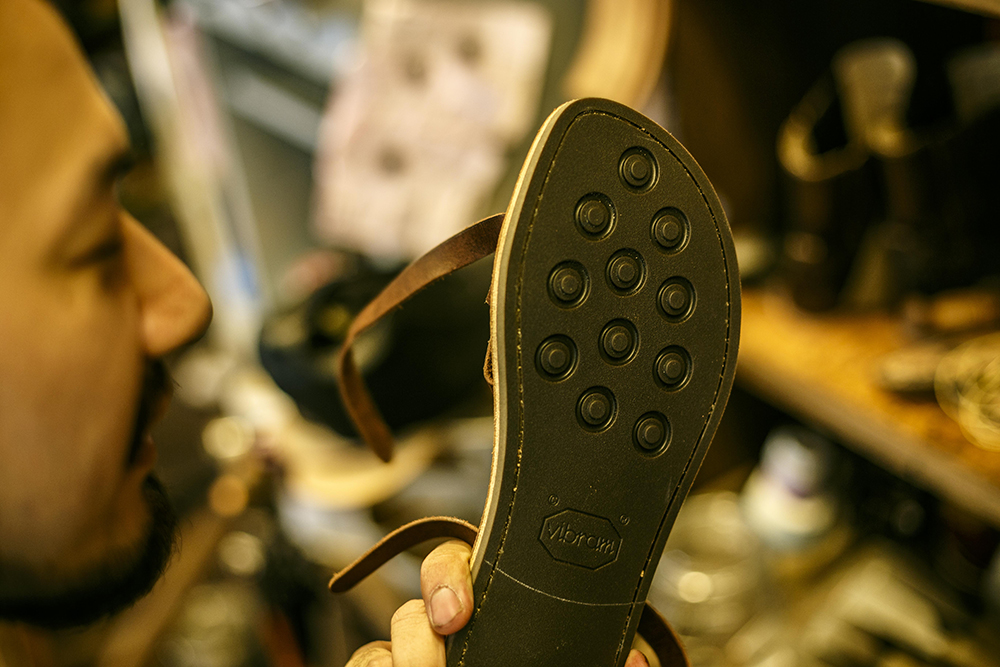
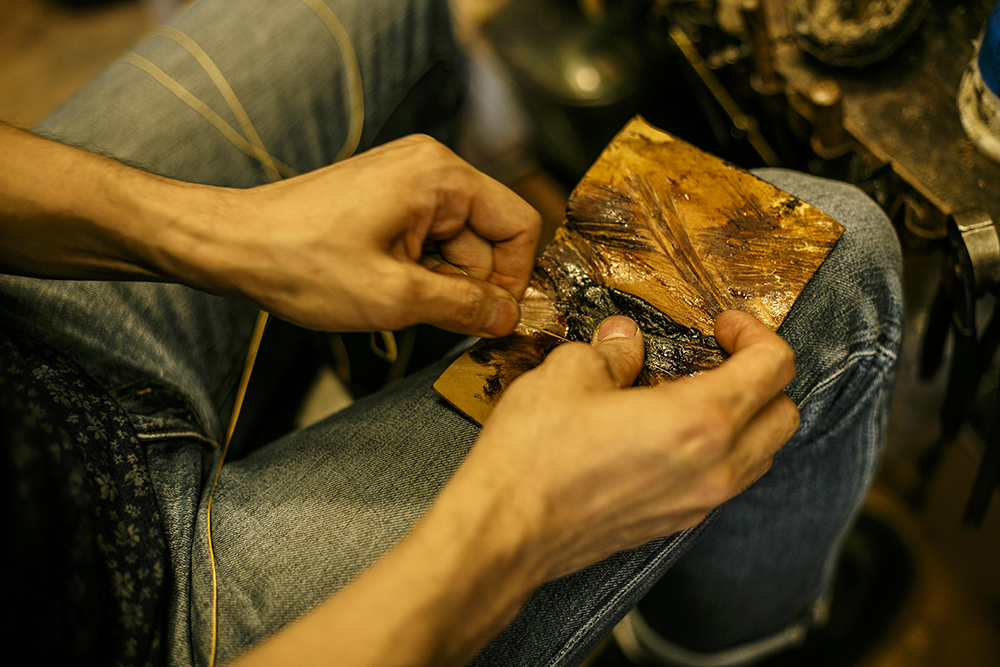
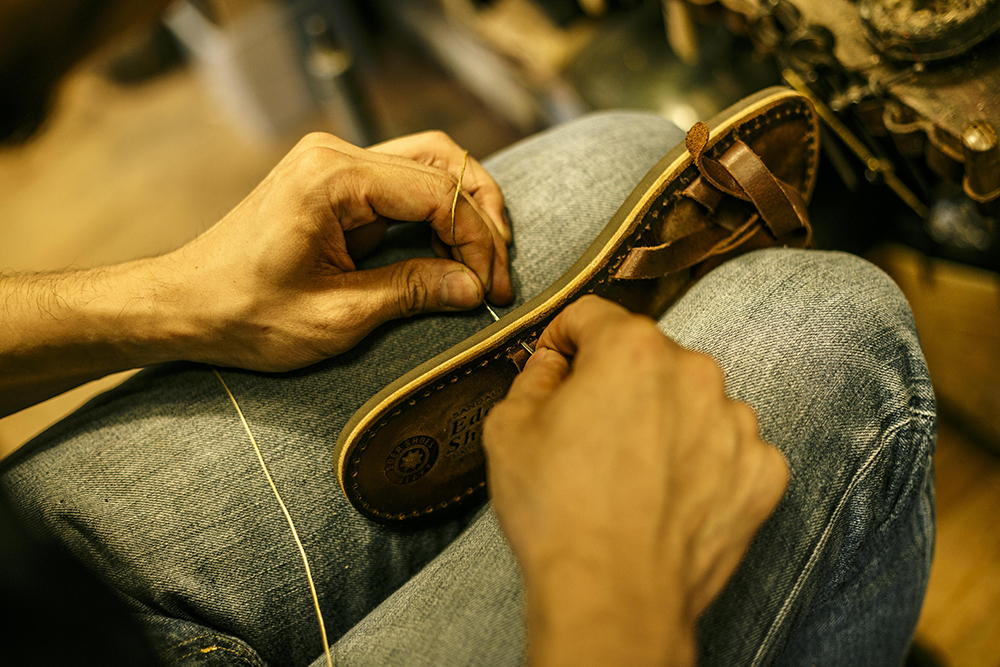
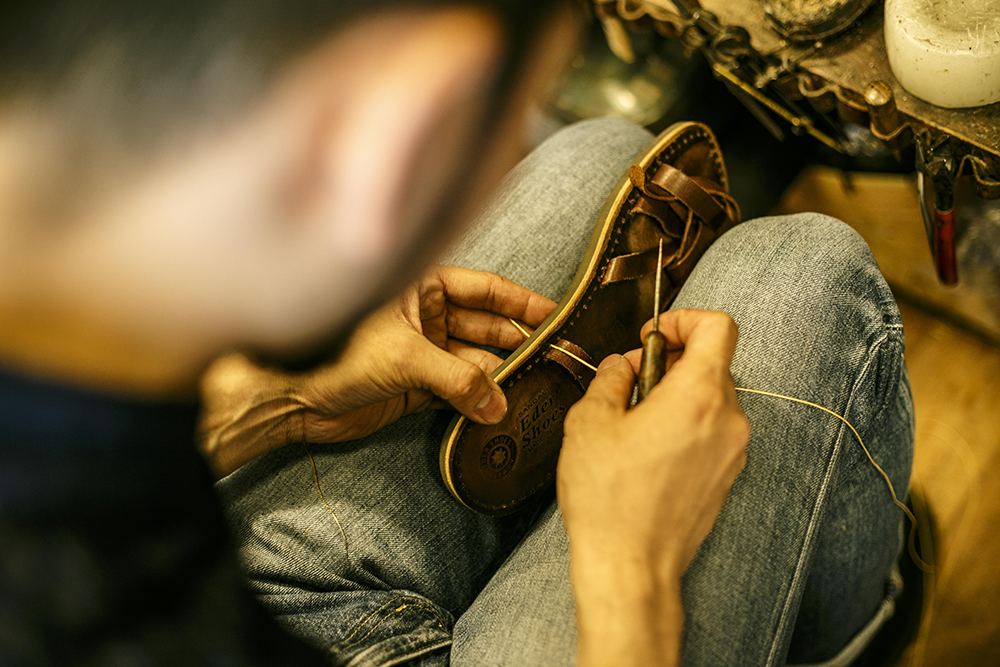
Murakami says he doesn't accept any orders. "I don't want to repair shoes to the point that it ruins their atmosphere. My main job is manufacturing, so I know how many craftsmen have gone into making those shoes and what kind of feelings they have, so I can't do quick repairs. If I really can't accept a request, I apologize, but I sometimes have to decline." I think this attitude comes from the fact that he takes shoes seriously.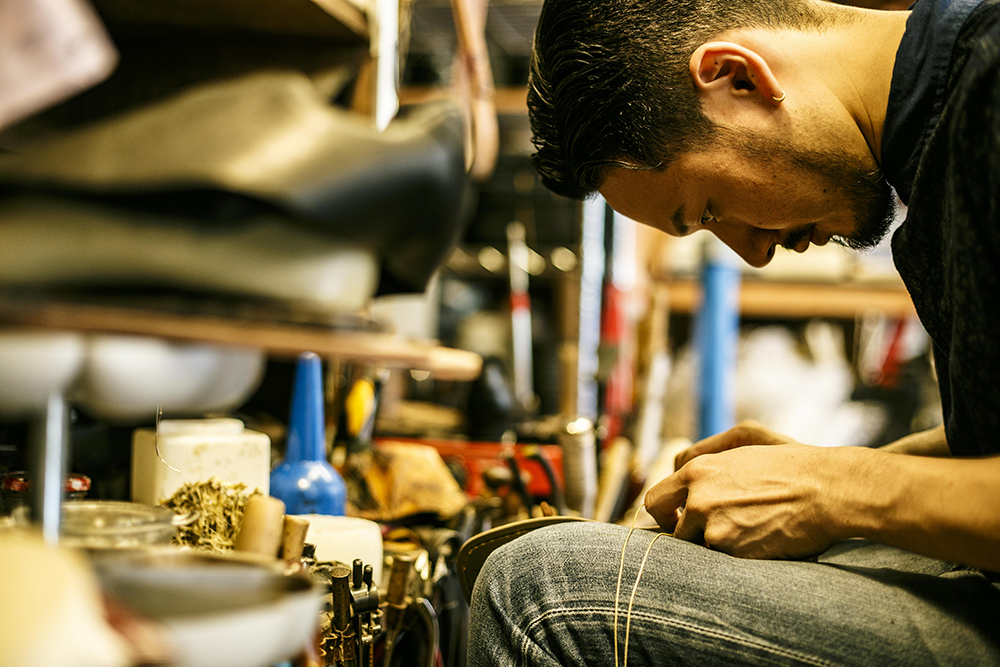
If you have ever been to Hudson Shoe Store, you will have noticed the beauty of the tools Murakami uses, such as this leather knife.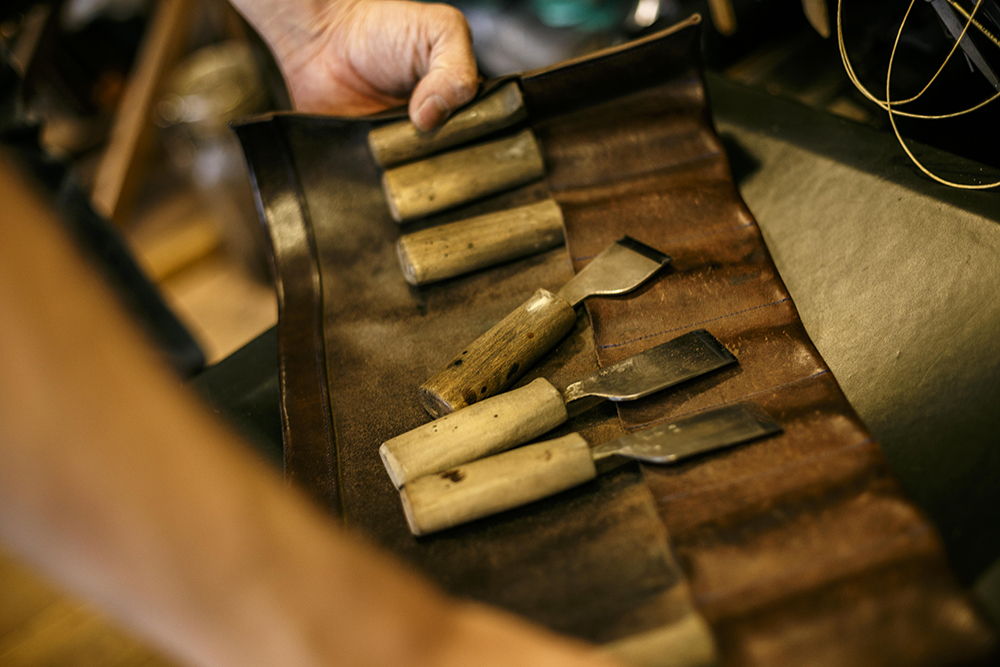
"Tools are life for a craftsman. I actually visited a sharpener in Asakusa and learned how to sharpen using a whetstone, and I sharpen the blades myself before using them. It is said that a shoemaker's career begins once they are able to properly sharpen this leather knife themselves. That kind of foundation is important for shoe repair."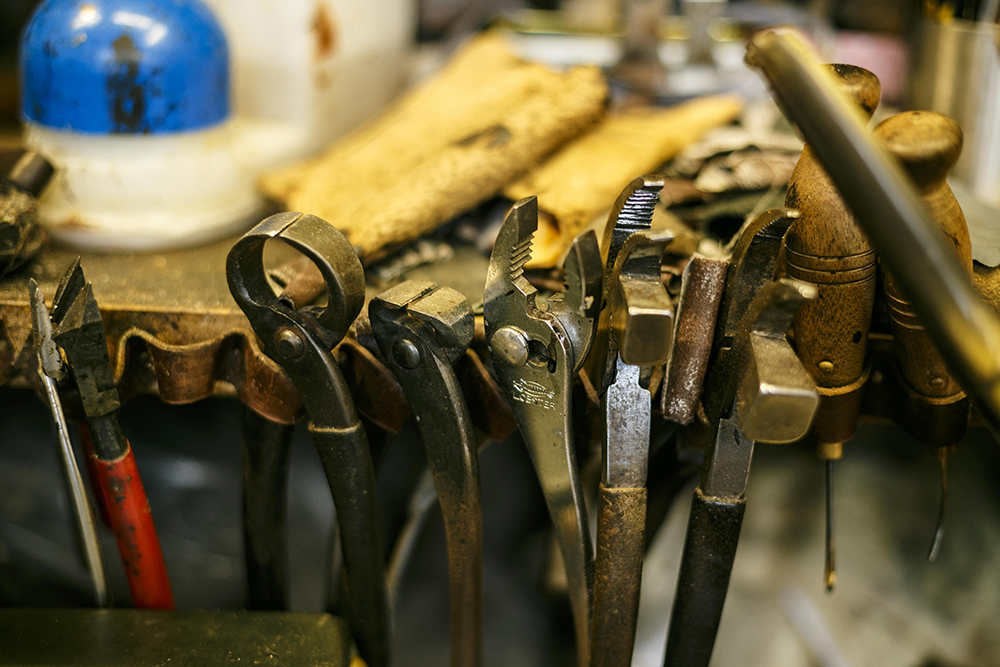
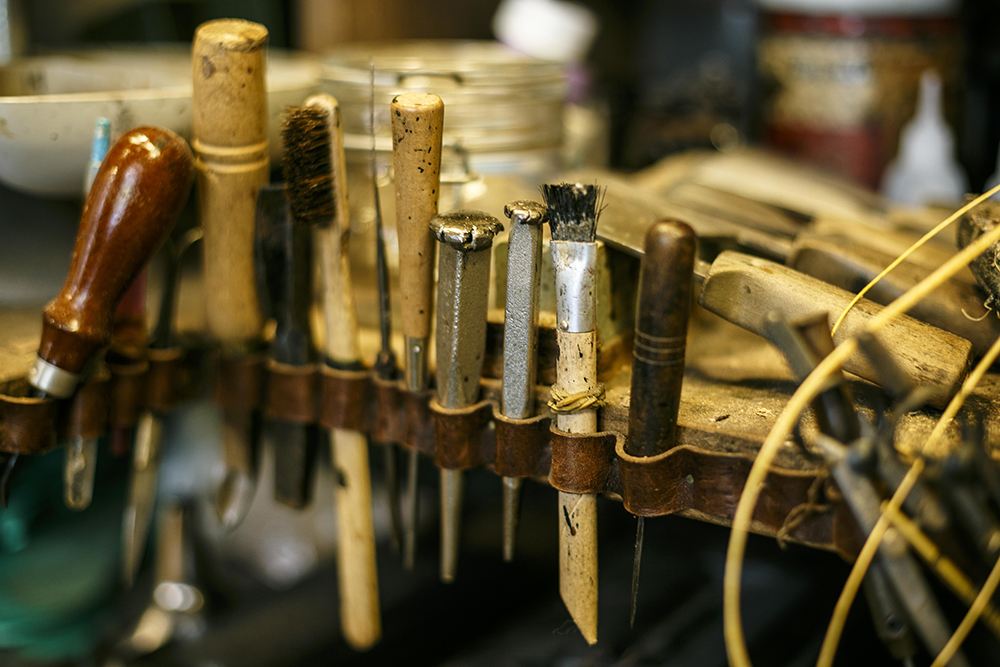
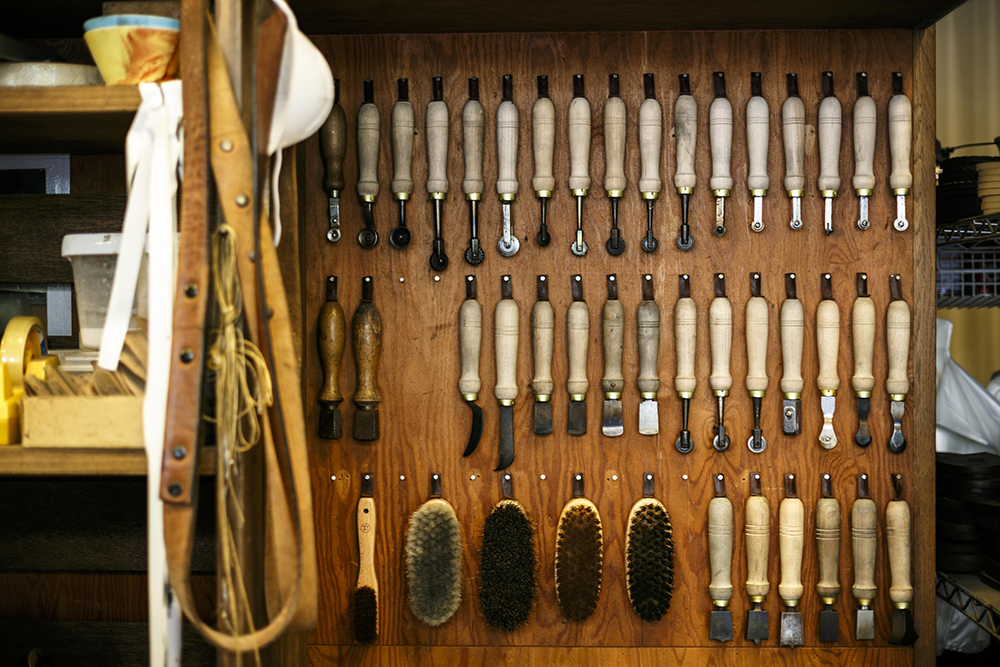
Murakami also uses needles and thread that he has customized himself to match the shoes he is repairing.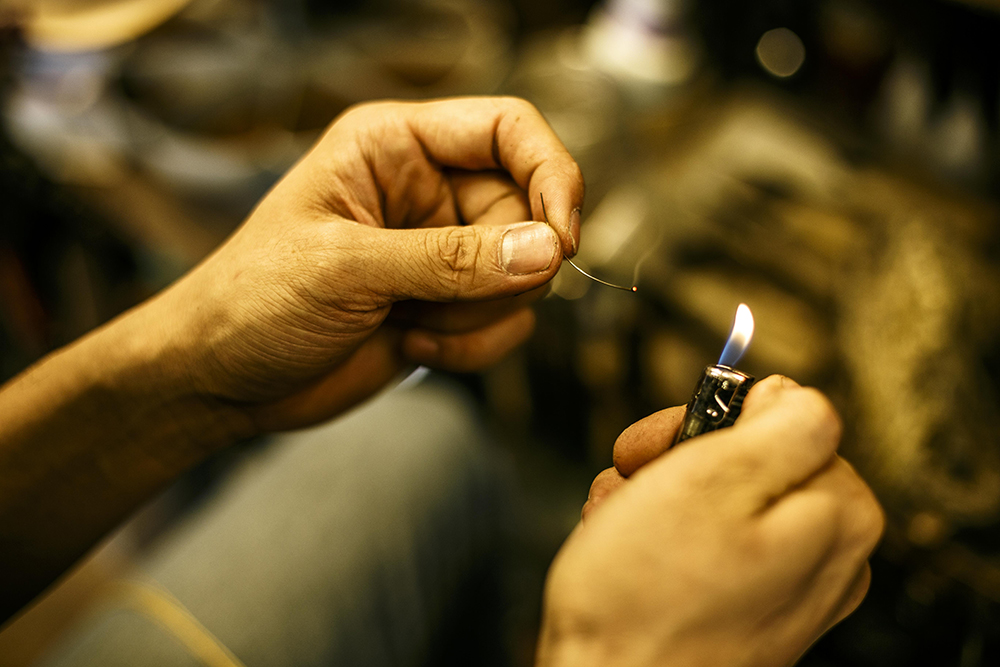
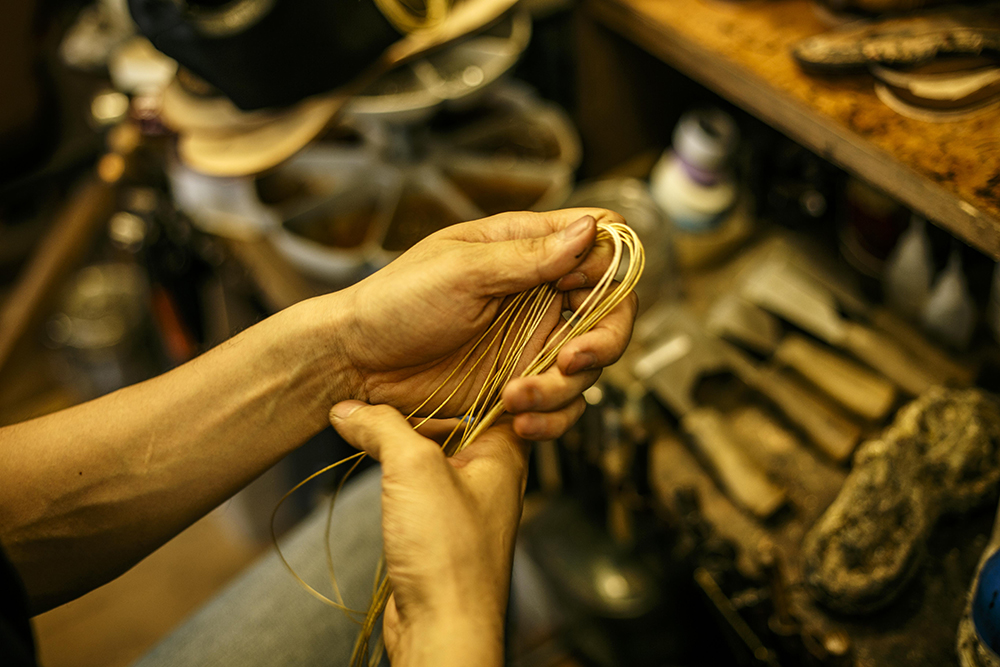
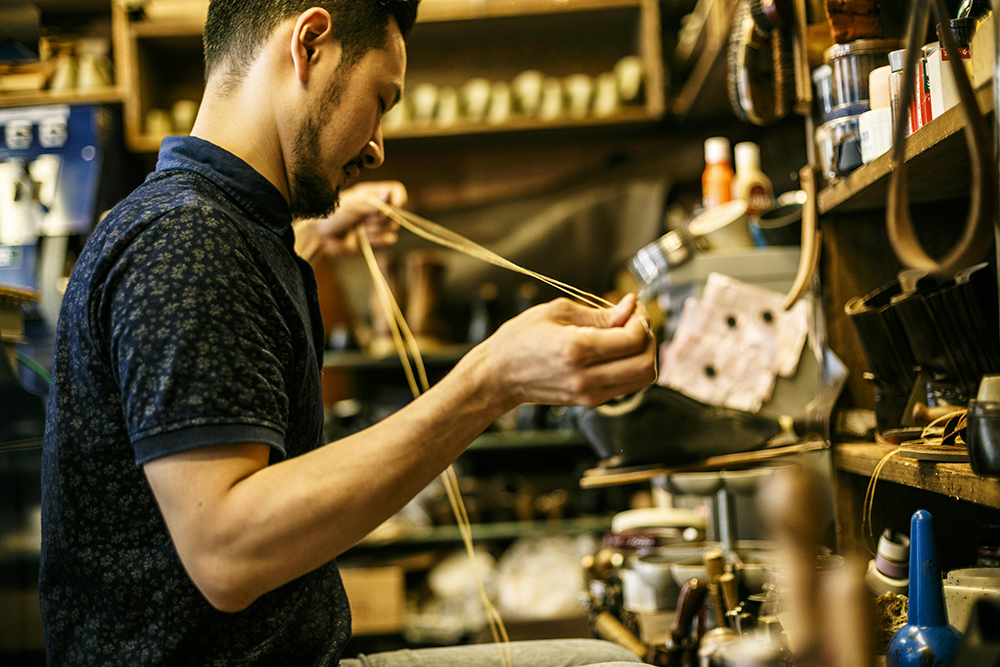
A tool box used by the previous generation.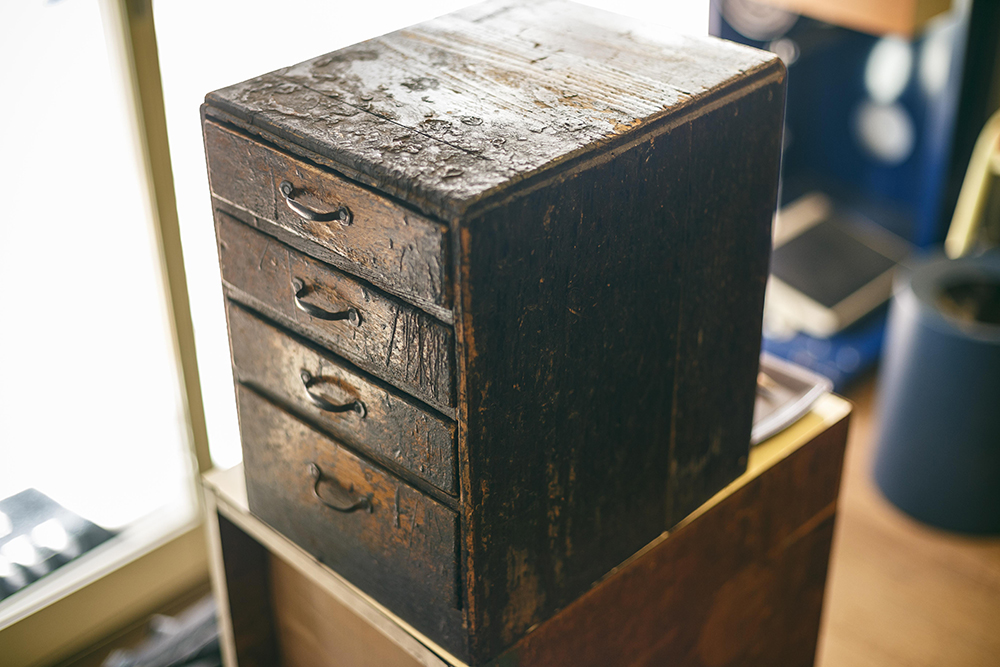
The machines used by the previous generation are still in use and working hard.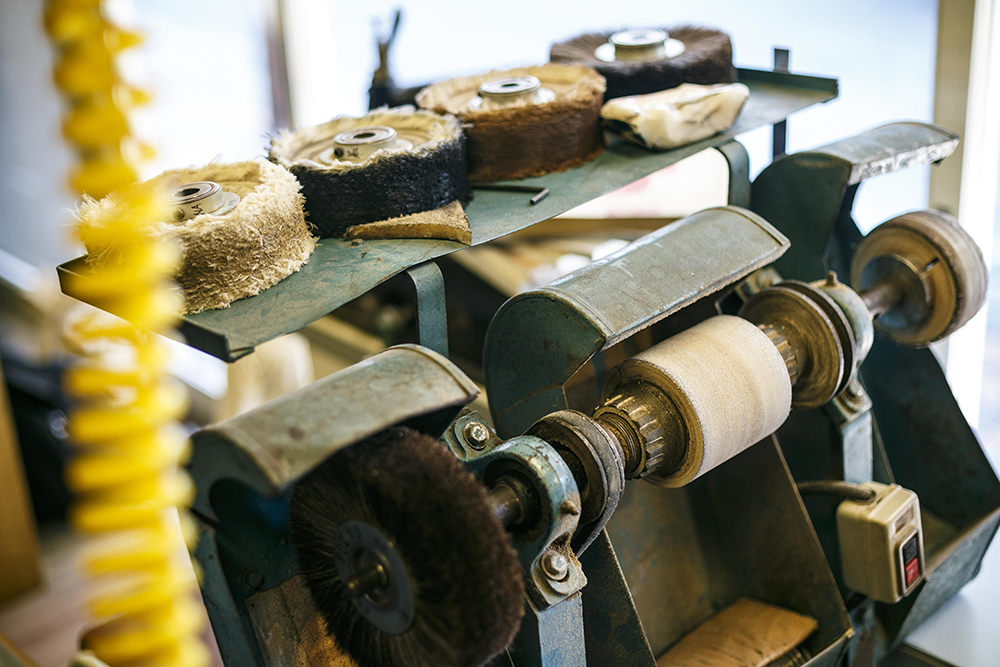
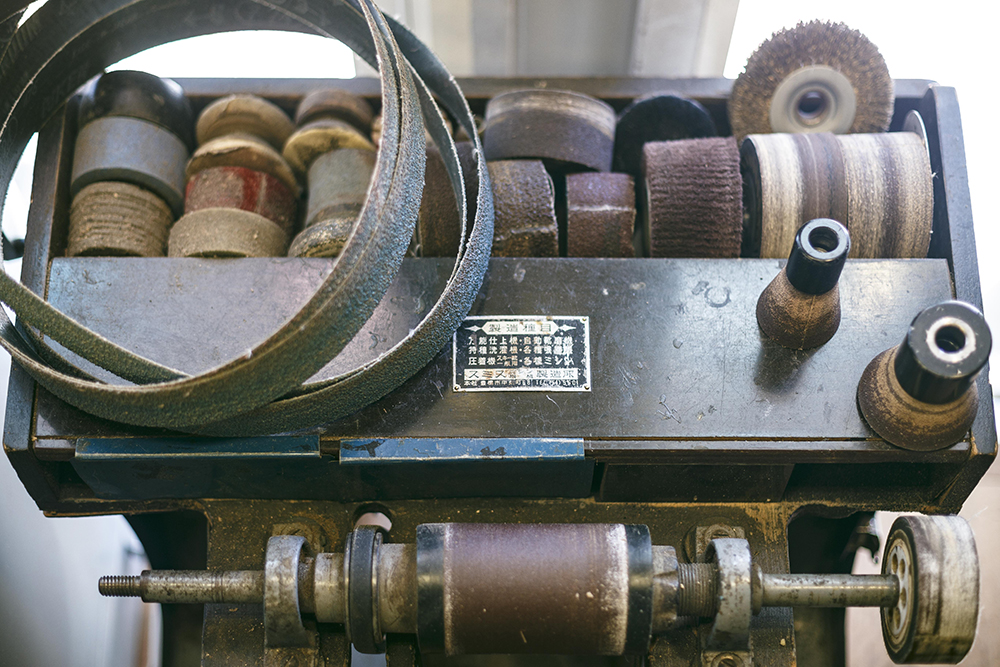
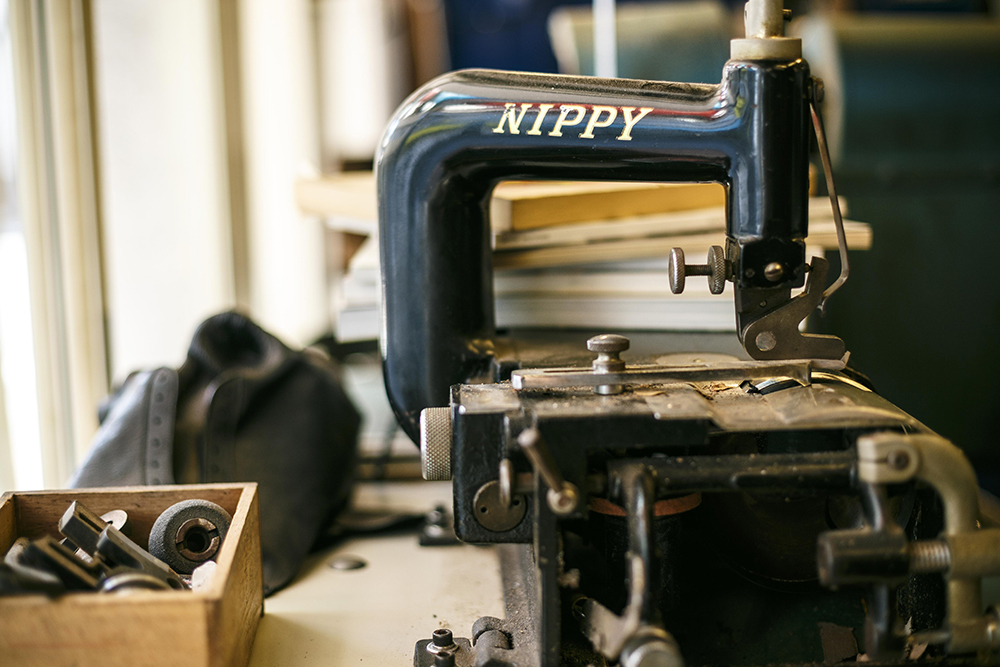
When we asked Murakami about his future plans, he replied, "Next year, we will open a made-to-order shoe store in a room in an apartment building 200-300 meters from this store. We plan to stock around 72 pairs of shoes made to order." This will be a delightful answer for Hudson fans. The shoe brand logo has already been decided.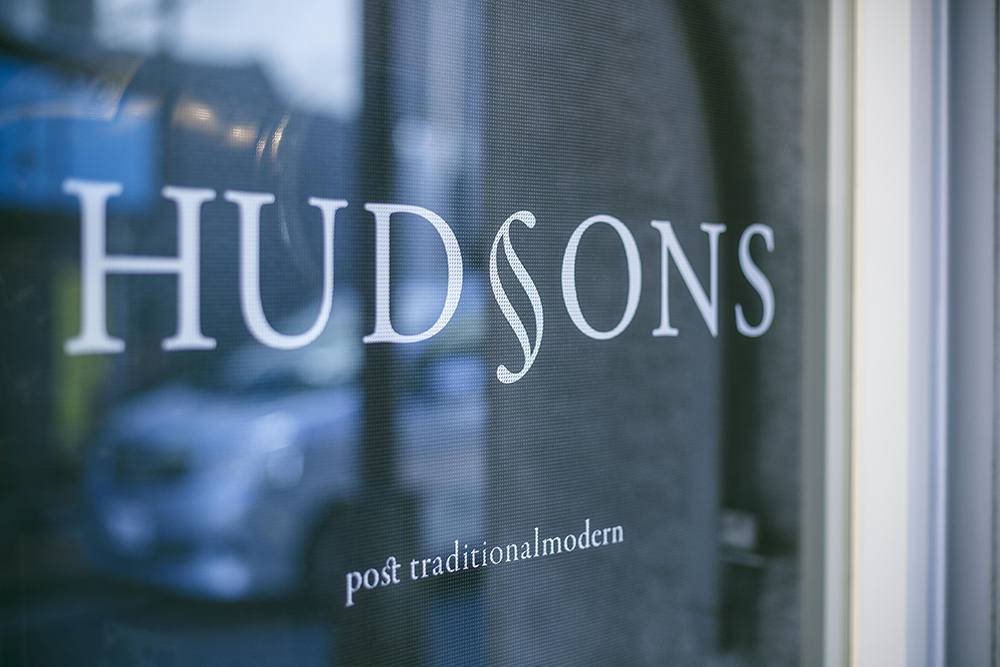
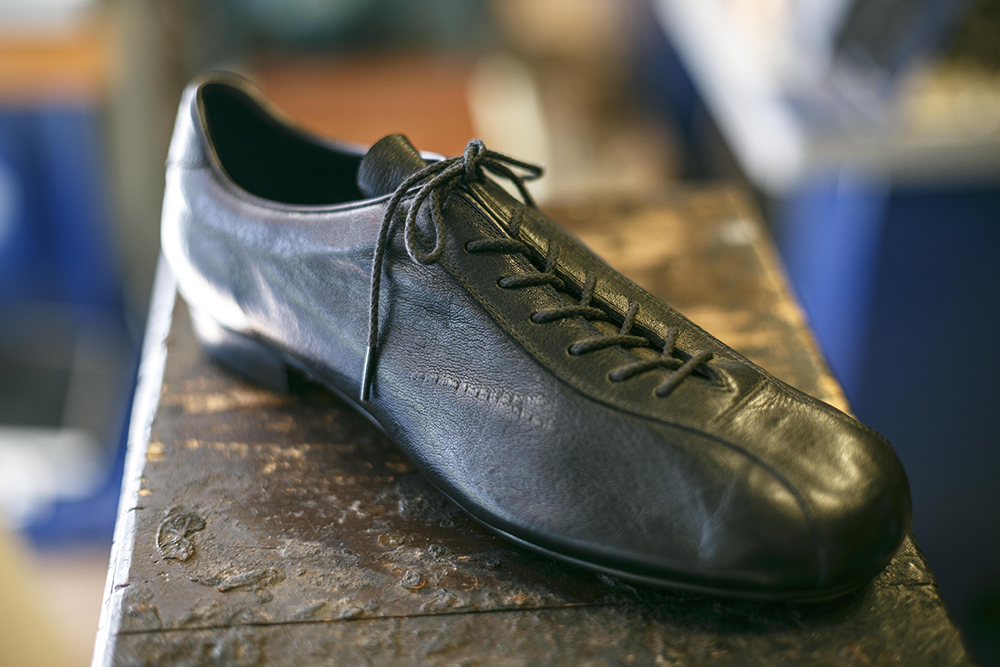
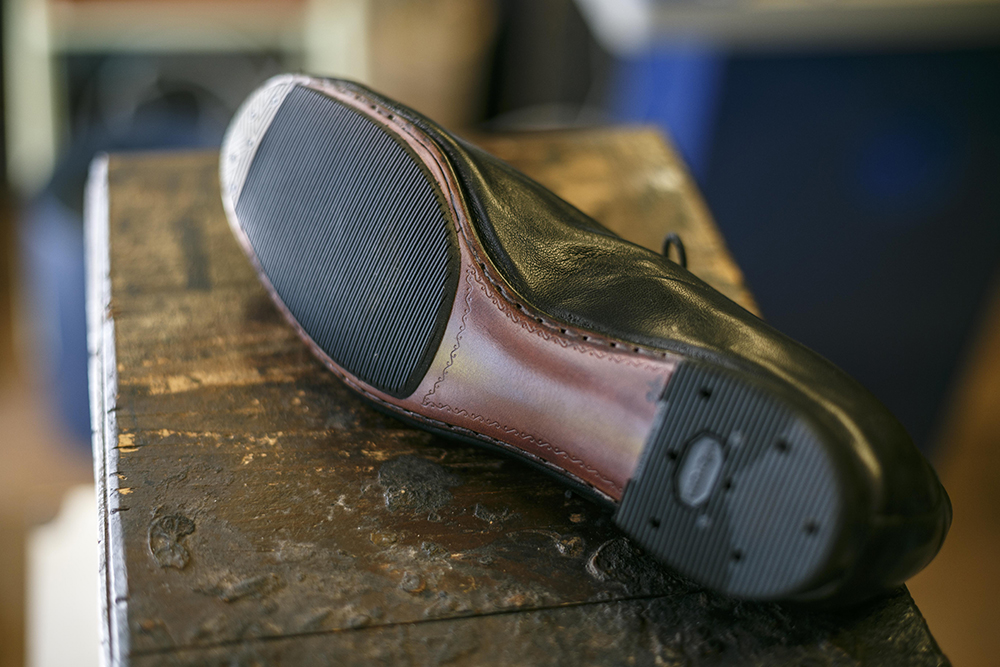
"Now that I've become a shoemaker and taken over this shop, I've realized even more that Japanese craftsmen in the past really risked their lives to do their work. As a craftsman myself, I want to work carefully so that customers will recognize me as a 'professional among professionals,'" says Murakami. The neatly maintained tools, the large machines waiting to be put to work, and above all, Murakami's hands covered in pine resin all speak of his love for shoes.